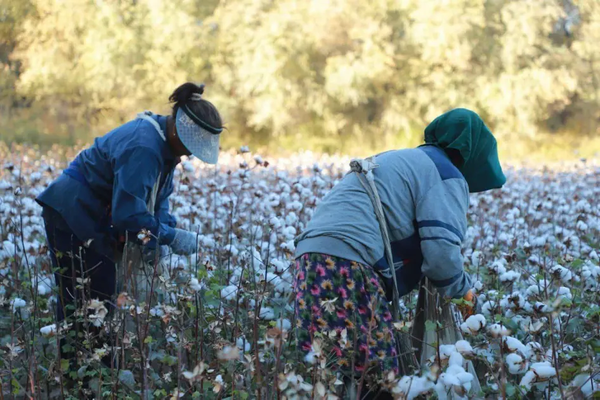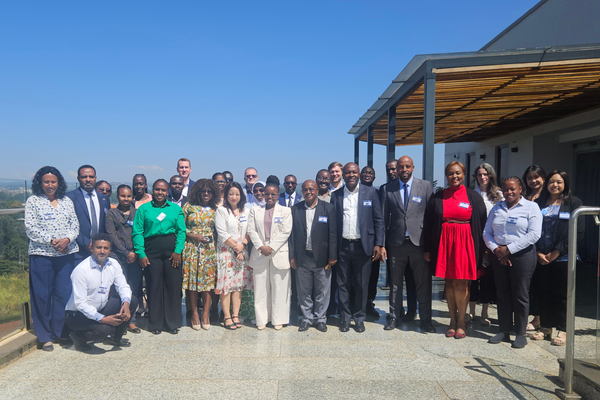Freedom Collaborative seeks emergency funding for its crisis response initiatives
The USAID stop-work order triggers a crisis in the global CTIP sector, a new report examines the rise of tech-facilitated trafficking, and China arrests a key human trafficking suspect.

Freedom Collaborative is seeking donations and funding to enable it to continue its activities supporting the response to trafficking for forced criminality and our civil society organizations (CSOs) on the ground in the wake of the U.S. State Department’s recent executive order. The order was issued over the weekend and put an immediate pause on all new foreign aid spending and a stop-work order on existing grants and contracts pending review. This follows an earlier order suspending U.S. foreign assistance spending for 90 days, while an evaluation of efficiencies and consistency with the new administration’s foreign policy is carried out.
As a result of these orders, Freedom Collaborative has lost nearly all its funding for the next three months and possibly thereafter. This immediately and dramatically impacts our ability to carry out our core work connecting and supporting CSOs working on the forced criminality issue and across Asia.
Over the past year, Freedom Collaborative’s work has been centered around supporting grassroots and community groups involved in the trafficking of persons into cyber-scam centers in Asia and beyond. Through our Trafficking for Forced Criminality Response Working Group, we support the sharing of updates on developments from the ground as well as resources, findings and intelligence for interventions, assist repatriation efforts, strengthen the evidence and data collection base, and ensure civil society perspectives on priorities for action are being shared safely with policymakers and global decision-makers.
Although international attention to online scamming and the human trafficking that enables it has been gradually increasing, it has been difficult for the sector to mobilize financial support for response efforts to this issue. While we have been highlighting the urgent need for greater resources since this crisis began, the current scale of the response is in no way sufficient to combat the rapidly expanding operations of the criminal networks involved.
The United States is the largest single donor of aid globally, and many anti-trafficking organizations on the frontline are highly dependent on funding from the U.S. Government. With no grace period or notice of the stop-work order given, critical projects are shutting down globally, hundreds of staff have already lost their jobs, and organizations are scrambling to find means to continue their work.
USAID provided significant support for our crisis response efforts and other critical work by partners on the ground. The sudden removal of this funding has added additional challenges on top of an already rapidly evolving crisis – leaving us with no resources to continue our work on the issue and our initiatives in Asia more generally. In response, Freedom Collaborative is initiating a new crisis initiative for partners on the ground across our working groups and regional initiatives, and invites organizations and practitioners interested in participating to sign up here.
We are seeking donations to enable us to continue our work to strengthen the civil society response to trafficking in persons, as well as partners who would be interested in supporting and working together on coordination, research and data, and advocacy initiatives. Any amount will be helpful, and we are open to discussing project ideas.
Here’s a round-up of other noteworthy news and initiatives:
This report by the OSCE’s office for Combating Trafficking in Human Beings (CTHB) highlights the growing misuse of technology in facilitating and expanding human trafficking globally. From using social media and messaging apps to lure and exploit victims to hiding illicit profits through cryptocurrencies, the report summarizes the alarming ways in which traffickers are leveraging modern tech to evade detection and expand their operations.
The passage of a new law in Iraq allowing children as young as nine to marry has sparked widespread outrage among women’s rights advocates and activists. Critics warn that the law not only undermines decades of progress but also puts vulnerable girls at risk of exploitation and lifelong harm.
Chinese authorities have apprehended a key suspect involved in human trafficking cases connected to online scam networks operating near the borders of Myanmar and Thailand. The announcement by China’s Ministry of Public Security comes just weeks after the high-profile disappearance of an actor raised widespread safety concerns.
Saudi Arabia has introduced a National Policy for the Elimination of Forced Labour, becoming the first Arab country to implement such a comprehensive framework. This milestone policy aims to prevent forced labour, protect victims, and align with international standards, showcasing the kingdom's commitment to safeguarding workers’ rights in line with its Vision 2030 goals, it says.
This article summarizes the way in which AI is playing a pivotal role in investigating human trafficking within the financial sector by identifying suspicious patterns and transactions linked to illicit activities. By leveraging advanced algorithms, financial institutions can detect and report trafficking-related activities more efficiently, enhancing global efforts to disrupt criminal networks.
Italy is making a third attempt to relocate migrants to Albania as part of efforts to manage the ongoing migration crisis. This initiative highlights the challenges European countries face in balancing humanitarian responsibilities with practical solutions to address increasing numbers of arrivals.
The Business & Human Rights Resource Centre is seeking a South Asia Researcher and Representative, with applications due by 12 February 2025.




